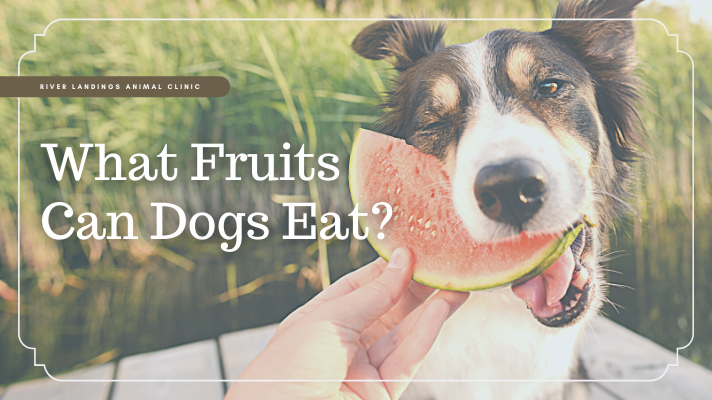You already know that fruit is important for keeping yourself healthy, but did you know that it’s great for your dog, too? While dogs don’t need fruit to be at their healthiest, the addition of fresh fruits to your pup’s normal diet, with permission and instructions from your vet, can provide them with an added boost of vitamins, minerals, and antioxidants, as well as some always-welcome extra hydration.
An important thing to remember, however, when it comes to feeding your dog fruit is that while many fruits are great for dogs, that doesn’t mean all of them are. In addition to checking out our list of the fruits that you shouldn’t feed your furry friend at the bottom of this page, you should also be sure to pay attention to how your dog responds to certain fruits. If you notice signs of an upset stomach or other discomfort, don’t feed them that type of fruit anymore—even if it’s otherwise safe for them. it’s also important to introduce new foods slowly, so as to pinpoint these possible affects.
Apples
An apple a day might not keep the vet away, but slices or otherwise small bits of apple make excellent treats and meal toppers. Just be sure not to feed your dog any apple seeds, since they contain small amounts of cyanide and also pose a choking risk.
Benefits:
Help clean teeth and freshen breath.
Contain vitamin A, vitamin C, and fiber, and there are also phyto-chemicals in the skin, which have been found to combat the growth of cancer cells in laboratory studies.
Bananas
Bananas have a ton of health benefits for our furry friends. They’re also innately portable, making them a good snack to bring along for the two of you to share on long walks.
Benefits:
The fiber in bananas may be good for your dog's digestion.
Contain high amounts of potassium, fiber, and vitamin C.
Blackberries
It’s safe to share blackberries with your pup, though use your best judgment in terms of cutting them up into smaller bites. Stick to sweeter blackberries, instead of tart ones, which your dog will likely prefer.
Benefits:
May have antibacterial properties that support good oral health.
Contain vitamins C and K, manganese, and fiber.
Blueberries
Dogs tend to love blueberries, which are already perfectly sized as treats for mouths both big and small. If you’re dealing with a tiny dog or a big blueberry though, cut the berry in half before serving.
Benefits:
Blueberries are low in sugar and fat and make a good treat for dogs who need to avoid too many extra calories.
Contain vitamins C and K, as well as calcium, magnesium, zinc, iron, and antioxidants.
Cantaloupe
Cantaloupe is a safe and healthy fruit for your dog to enjoy, but avoid feeding the rind, since the rough texture can cause intestinal damage.
Benefits:
High doses of beta-carotene, which is good for your dog’s vision and immune system.
Contains vitamins A, B-6, and C, as well as fiber, potassium, folate, and niacin.
Cranberries
Thanksgiving isn’t the only reason to stock these sweet treats in your home. Cranberries can be fed to your dog raw, cooked, or dried, but skip the sugar-laden cranberry sauce (sorry, Fido).
Benefits:
Cranberries are high in antioxidants.
Contain vitamins C and E, as well as a range of B vitamins, including thiamin, niacin, riboflavin, and B-6.
Papaya
Go ahead and feed papaya to your pup. The flesh of this exotic fruit makes an excellent snack.
Benefits:
Contain vitamins A, C, E, and K, as well as folate.
Hi in fiber, calcium, and potassium.
Raspberries
When consumed in moderation, raspberries serve as a delicious treat for you dog. And most dogs seem to like them, especially when they’re at their peak sweetness in summer.
Benefits:
Thought to help fight against cancer, circulatory disease, and age-related decline.
Contain vitamin C, folic acid, copper, magnesium, fiber, and antioxidants.
Strawberries
Like most other berries, strawberries are chock-full of antioxidants. For safe feeding, slice off the leaves at the top first and then quarter the strawberry. If your dog is small, cut each quarter in half (or smaller).
Benefits:
Strawberries can provide a big boost to the immune system with their high level of antioxidants. They also have a high water content, making them a hydrating snack.
Contain vitamins C, B-6, K, and E, as well as folate, potassium, and manganese.
Watermelon
Nothing is quite as satisfying on a hot day as a juicy slice of watermelon, and our dogs agree. Just don’t feed the rind or seeds, which are difficult for your dog to digest.
Benefits:
High in lycopene, an antioxidant that protects against cell damage.
Contain vitamins A, B-6, and C, as well as thiamin, which helps convert fat, protein, and carbohydrates into energy.
Incredibly hydrating thanks to a high water content.
Fruits You Shouldn’t Feed Your Dog
While the list of fruits that dogs can eat is long, as a responsible pet parent you should also be aware of the fruits that dogs can’t eat. These include:
Cherries
Grapefruit
Grapes
Lemons
Limes
Plums
Always err on the side of safety when it comes to feeding your dog any type of fruit for the first time. Even fruits that aren’t on this list can pose a problem to your particular dog, so do your research, feed only small amounts at first, and be on the lookout for signs of a bad reaction.
Hear From Us Again
Don't forget to subscribe to our email newsletter for more recipes, articles, and clinic updates delivered straight to your e-mail inbox.
Related Categories:

